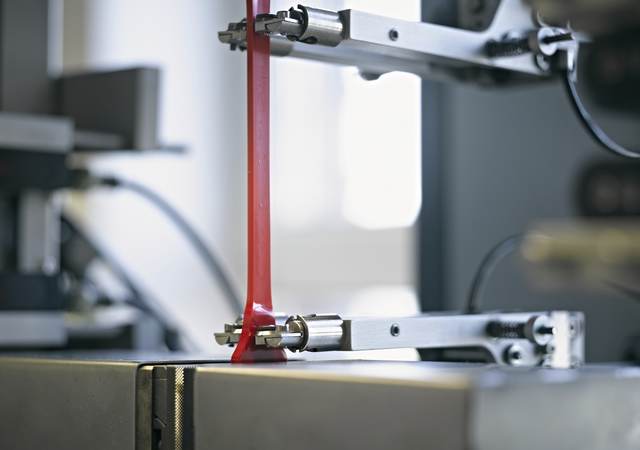Safety and performance verification are critical to building trust with buyers. In this webinar series, our plastics experts discuss the purpose and significance of various tests, standards and how you can use the resulting data and verification to save time and money.
Introduction to the UL Yellow Card and Flammability Rating (1 of 3)
As a plastics manufacturer or OEM, you are diligent about ensuring your products meet safety standards as well as quality and performance requirements.
The UL Plastics Recognition Program (Yellow Card) can help streamline your product development process, help ensure your product safety and quality and ultimately increase your speed to market.
Topics:
- What is the benefit of UL plastic recognition at the component level – from the end product customer’s point-of-view?
- Components of the UL Yellow Card
- The value of having a Yellow Card to the manufacturer and end-product customer
- Why is flammability rating important?
- UL 94 Flammability testing - thickness recognition (minimum thickness or range), colors to be tested and common flame ratings
- UL 94 Horizontal Burning (HB) testing - what type of enclosure requires it, testing method (with animation), passing criteria and sample requirement
- UL 94 Vertical Flame (V-0, V-1, V-2) testing - what type of enclosure requires it, testing method (with animation), passing criteria and sample requirement
- Alternative end-product flammability test, per UL 746C
Safety and Performance Evaluations of Plastic Materials (2 of 3)
Plastic products need to be tested to confirm that they meet a very specific set of regulatory safety and quality standards. This webinar provides an introduction to specific safety and performance evaluations that can be conducted on your plastic materials.
Topics:
- UL 746A High Current Arc Ignition Test (HAI) - purpose, specimen requirement, testing method and performance level category (PLC) assignment
- UL 746A Hot Wire Ignition Test (HWI) - purpose, specimen requirement, testing method and PLC assignment
- UL 746C - verifies the relationship between flammability and resistance to ignition rating for end product design
- Alternative test - Glow Wire Ignition Test (GWIT/GWFI) - purpose, specimen requirement, testing method, passing criteria and temperature assignment and requirement based on application
- Dielectric Strength (DS) - purpose, specimen requirement, testing method, PLC assignment and end product requirement
- Comparative Tracking Index (CTI) - purpose, specimen requirement, testing method, PLC assignment and end product requirement
UL’s Outdoor Suitability Program (3 of 3)
If plastic materials are to be used in an end product subjected to an outdoor environment, they have to be tested for outdoor rating. Do you know which plastic end product categories require outdoor rating?
Our plastic experts can help answer that question and walk you through the testing requirements for the UL 746C outdoor suitability program.
Watch this free webinar to learn about:
- What is the UL 746C outdoor suitability program for plastic materials and why do some plastic materials need f1/f2 rating?
- Exposures: UV and water immersion
- Sample and testing requirements for UL 94 Flammability, UL 746A Strength and Impact
- Thickness and colors to be tested for flame, strength, and impact
- Passing criteria for UL 746C (f1) and (f2) evaluations and implications of (f2) rating during end-product certification
- What end products require UL 746C outdoor rating?
 Speaker
Speaker
Charissa Gunawan, engineer, UL in Singapore
Charissa Gunawan has more than two years of working experience in UL. She is currently holding an engineering position, specializing in certification and testing requirements of polymeric materials, and marking and labeling systems. She is directly involved as a project handler for safety certification projects of polymeric materials and marking and labeling systems, for the ASEAN region. Charissa holds Bachelor of Engineering degree in Chemical Engineering from National University of Singapore (NUS).
Get in touch
Have questions, need specifics? Let's get this conversation started.



